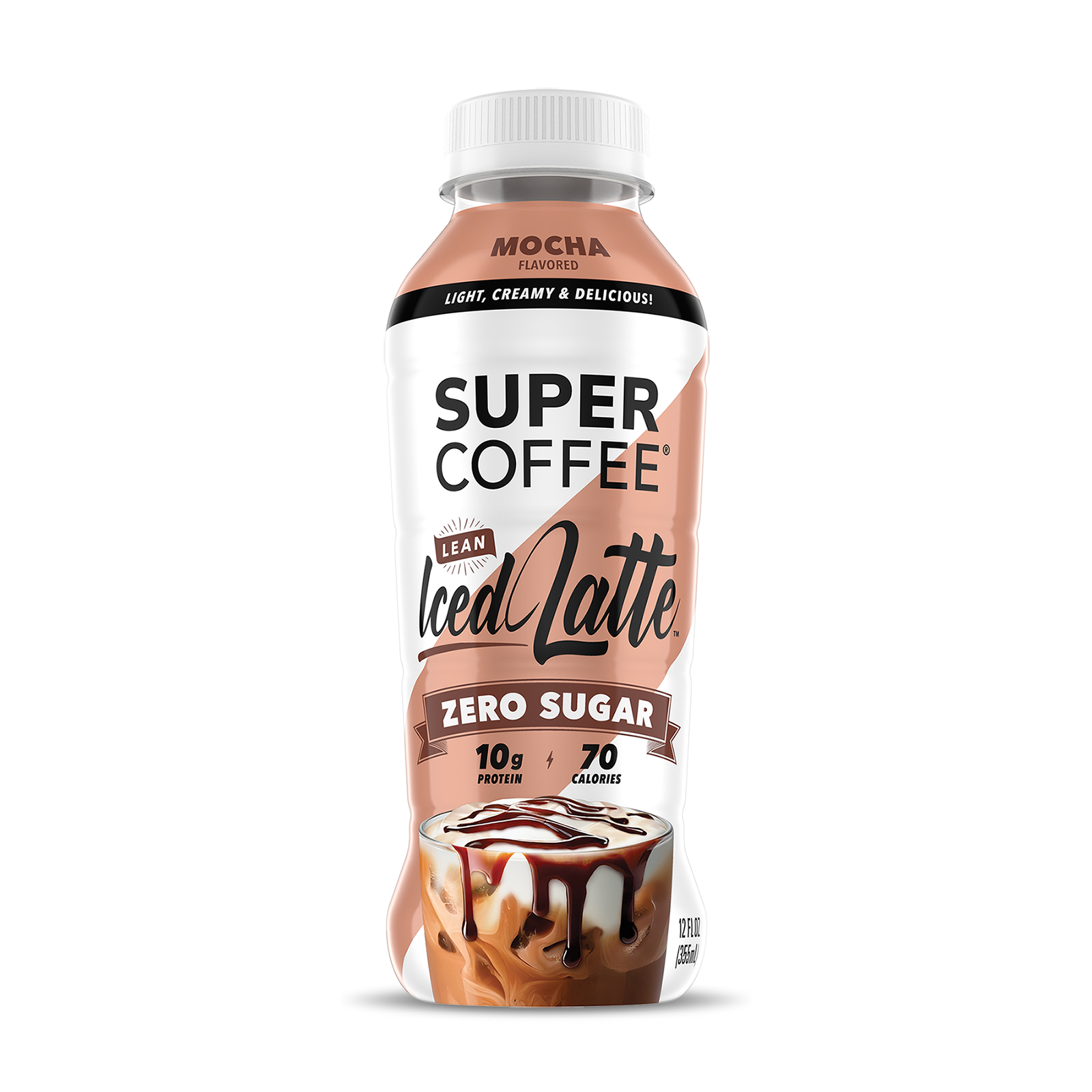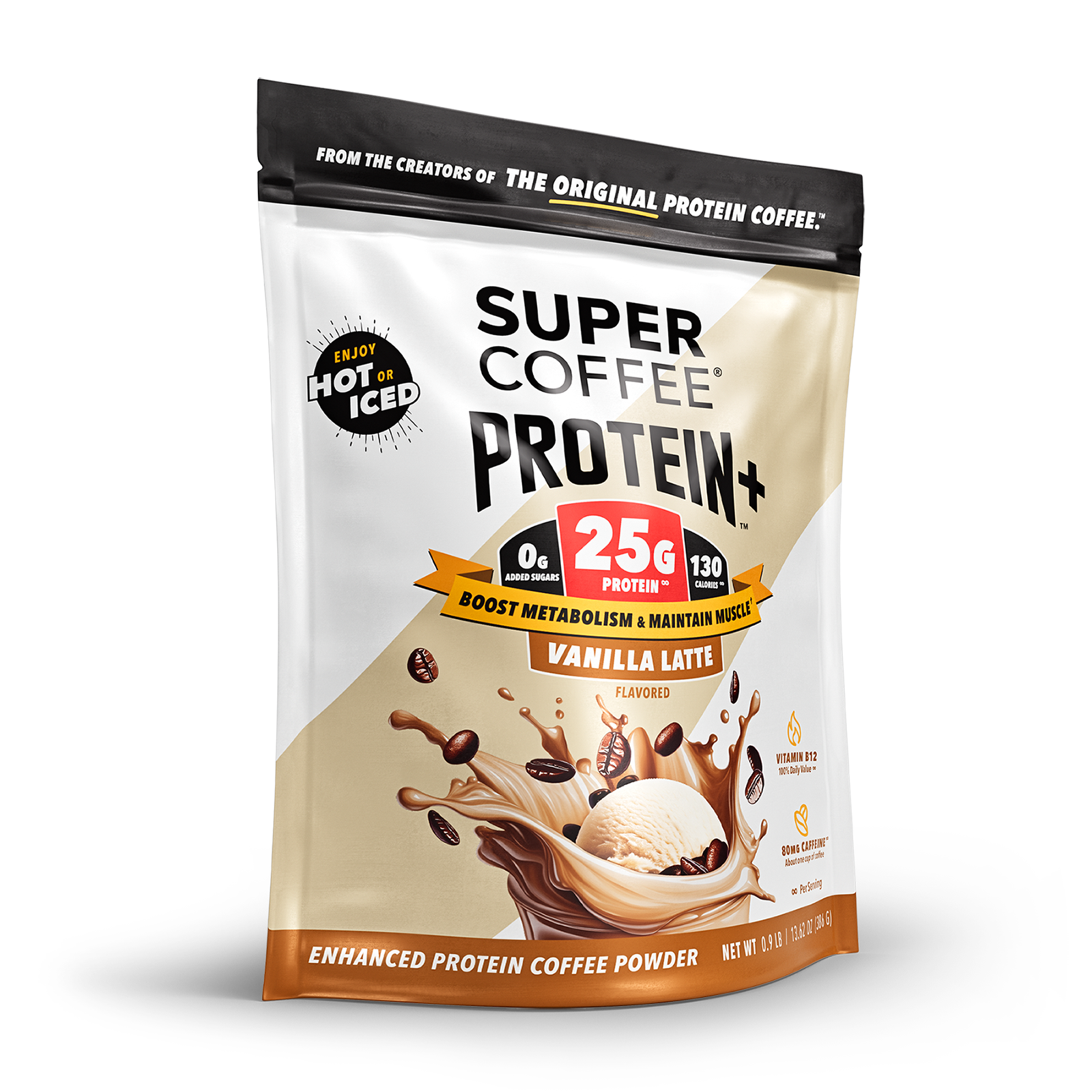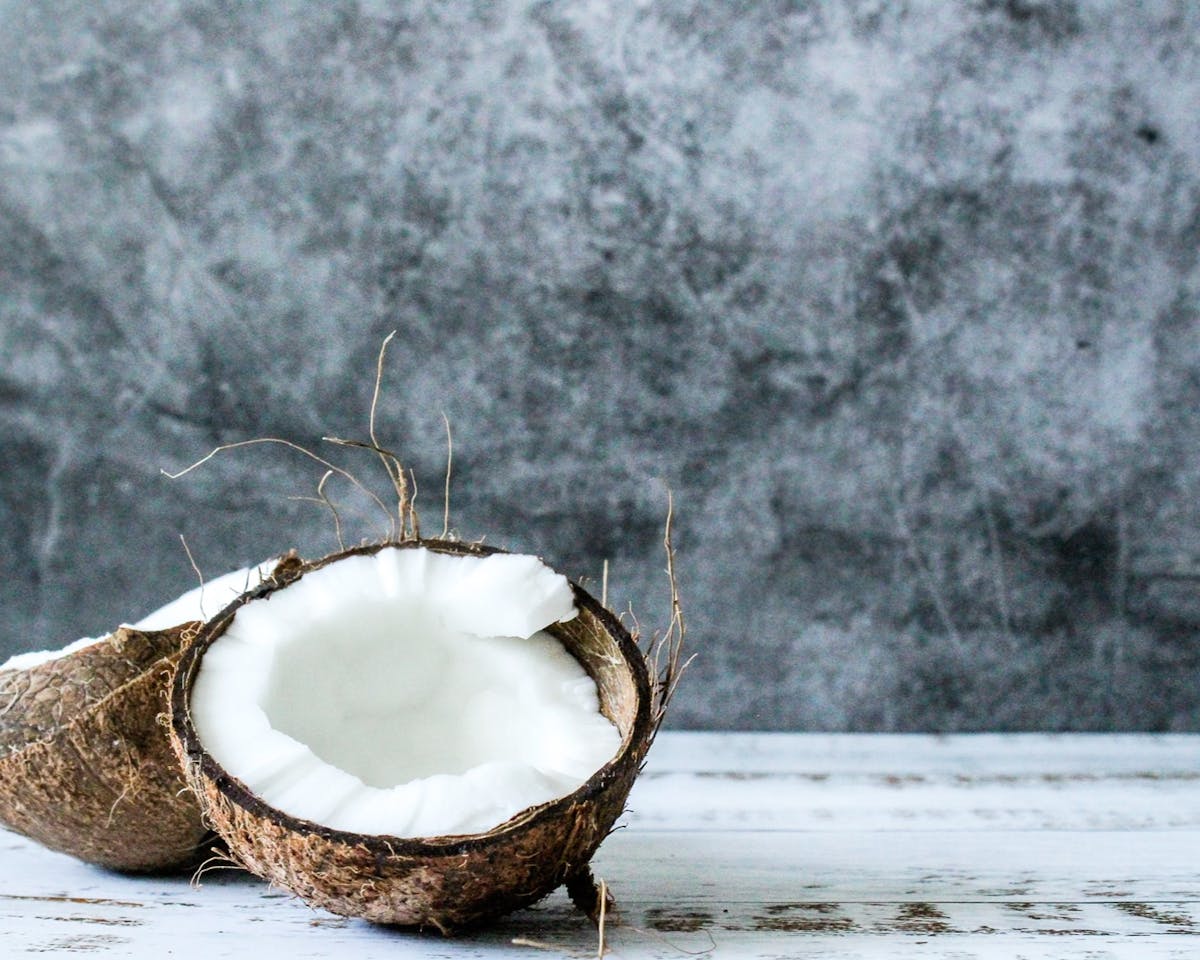Your cart is empty
If you can’t afford leather furniture, you may go with a microfiber fabric instead. You’ve run out of butter? Vegetable shortening will work fine in most recipes. Your significant other took the car? There’s always the bus.
As humans – especially humans without the resources of Jeff Bezos or Elon Musk – we’ve become rather accomplished at finding acceptable substitutions. Even so, there are times when we’re not sure if one product can take the place of another, or if it will be as good.
That brings us to coconut oil coffee. You may have seen references to it; you may have even seen a recipe for coconut oil coffee that looks tempting.
It does look an awful lot like the bulletproof coffee that’s popular among keto dieters; all that’s different is the use of coconut oil instead of MCT oil. And if you’re not even sure what MCT oil is or where to buy it, it’s an easy choice to go the coconut oil route instead of hunting down the ingredients of butter coffee. (Bulletproof coffee, butter coffee and keto coffee are different names for the same beverage.)
But is that a good idea? Is coconut oil coffee as good as bulletproof coffee? For that matter, is coconut oil the same thing as MCT oil?
Let’s dig into the details.
Coconut Oil vs. MCT Oil
If you’ve ever poked around, trying to learn a little about the keto diet, you may have seen a reference to MCT coconut oil. (It often called “MCT oil from coconut,” or something similar.)
That reinforces a mistaken idea, even among dedicated keto dieters, that coconut oil and MCT oil are the same thing. They’re not. And the best way to explain this is to back up a bit.
At the molecular level, most fats that we consume are composed of a long chain of fatty acids. They’re called, for reasons that are hopefully obvious, long-chain triglycerides (LCTs).
Oils that are extracted from plants, like olive oil and avocado oil, are rich in LCTs. However, oils from a few plants, notably coconut and palm, contain two types of fats. They still contain LCTs, but they’re also rich in fats which have fewer fatty acids in each chain. Those fats are known as – you guessed it – medium-chain triglycerides, or MCTs. (There are MCTs in dairy fat as well.)
LCTs, MCTs – what difference does it make? Digesting LCTs is a lengthy process, requiring the body to use bile and enzymes to break them down. Shorter chains, however, are much easier for the body to digest and turn into energy. There’s one other benefit, too: excess MCTs aren’t usually stored as body fat.
That means that MCTs provide a healthy source of fast energy, in the form of molecules called ketones. Remember that last fact (the ketones); it will be important to our discussion later on.
So coconut oil contains both LCTs and MCTs. Let’s say, for argument’s sake, that you wanted just the MCT oil. Where would you get it? You’d purchase it from companies that use a technique called fractionalization to extract just the MCTs. They sell the final product, MCT oil, for a premium price.
That’s the basic difference between coconut oil and MCT oil. Coconut oil contains some MCTs, but MCT oil is pure, containing only medium-chain triglycerides. You might even consider coconut oil to be a “poor man’s” substitute for MCT oil.
If your goal is to use MCTs for a specific purpose, then MCT oil is your best choice.
What is MCT Oil Used For?
MCT oil is sometimes taken as a dietary supplement, because a number of supposed health benefits are associated with the oil.
- Energy and Endurance: This is the most obvious one, since MCTs are able to produce energy more rapidly than LCTs. The evidence is still incomplete, but some studies claim that MCTs can prevent the lactate buildup that’s responsible the for cramps, aches and exhaustion that set in during workouts. Their effect feels like a quick boost of energy. MCTs may also encourage the body to burn fat, rather than carbs, for energy.
- Cognitive Function: Most research in this area has been done with patients suffering with Alzheimer’s disease. There’s evidence that their brains function “normally” when energy is supplied by ketones (the energy source provided by MCTs), but don’t function as well when energy comes from the glucose created when the body burns carbs. Anecdotal evidence indicates that MCT oil can enhance brain function in “healthy” people, too.
- Heart Health and Diabetes: Limited research indicates that MCTs are effective at reducing cholesterol levels, improving blood sugar levels, and lowering insulin resistance that can cause type 2 diabetes.
- Important Protective Properties: MCTs have been shown to effectively work as antioxidants and anti-inflammatories, and have impressive antibacterial and antifungal properties, supporting the immune system and fighting microbes that cause infection.
Does coconut oil deliver the same health benefits? Apparently, but to a much lesser degree; that’s because coconut oil contains many fewer MCTs than pure MCT oil. The more important benefits of coconut oil are seen when it’s used externally for skin and hair health.
Most people who take MCT oil as a supplement don’t do it to realize the health benefits we’ve just mentioned, though. They do it when they’re following the low-carb, high-fat ketogenic diet (or a similar one, like the paleo diet).
Here’s why.
The Keto Diet and MCT Oil
You’re probably generally familiar with the keto diet; you drastically reduce carbohydrate consumption, replacing carbs with high-quality healthy fats. Eliminating high-carb foods like sugars and starches (including bread, pasta, soda and most snacks) usually leads to noticeable and rapid weight loss.
But why?
Here’s the quick summary. The body turns the carbs we eat into glucose, or blood sugar. It then uses glucose as its primary energy source. Any excess glucose is stored – much of it as fat.
When the body doesn’t get enough carbs, it can’t produce enough glucose to power the body and brain. In emergency mode, it needs to find another source of energy; what it does is enter a metabolic state known as ketosis, in which it produces molecules called ketone bodies (or ketones, for short). The body – and the brain, in particular – can function very well on ketones instead of glucose.
There’s an added benefit: in order to produce ketones, the body burns its stored fat. And as everyone knows, burning stored fat means weight loss.
The bottom line is easy to figure out. As long as the body doesn’t get enough carbs to let it make glucose, it stays in ketosis and the weight loss ideally continues.
Hopefully, this short discussion of the keto diet and ketones rang a bell. Remember? MCT oil causes the body to produce ketones, too. So when it’s crucial to stay in ketosis, MCT oil can be a powerful ally for keto dieters. It helps them stay in ketosis.
What About Coconut Oil on the Keto Diet?
Coconut oil causes the production of ketones, too – but to a much lesser extent. That makes MCT oil a better choice for that purpose.
However, coconut oil provides one advantage that MCT oil doesn’t.
A fatty acid that’s prevalent in coconut oil, but usually not contained in MCT oil, is lauric acid. It’s literally a medium-chain triglyceride but it acts more like an LCT; it’s digested and metabolized much more slowly than other MCTs. There’s an upside, though. Because lauric acid takes longer to digest, and it helps reduce production of the “hunger hormone” ghrelin, it makes you feel full and reduces your appetite. That’s a benefit that MCTs can’t provide.
Bottom line: you can use coconut oil instead of MCT oil when you’re on keto, but it won’t deliver the same effect on your ability to stay in ketosis. If you’re very careful with how many carbs you eat – and don’t need the extra help – coconut oil helps you eat less and could be a better choice.
Some who are on the keto diet add MCT oil or coconut oil directly to their food and drinks, since it can easily be added to smoothies or dressings, or included in recipes. Others take it “straight” as a supplement.
But the most popular use for MCT oil (and sometimes, coconut oil) is in so-called bulletproof coffee.
What is Bulletproof Coffee?
Statistics show that most people enjoy a morning cup of coffee to start their day. Whether it’s in fresh-brewed coffee, instant coffee, or iced coffee in the summer, caffeine wakes you up by boosting your energy levels. It kick-starts brain function as well. Caffeine also provides a number of other health benefits; studies show that, in moderation, coffee appears to helps with everything from cardiovascular health to diabetes prevention.
That morning coffee is also a perfect vehicle for delivering a shot of MCT oil when you’re on keto. And MCT oil is one of the ingredients in a bulletproof cup of joe. (You can put coconut oil in there, if you prefer.)
There’s another important ingredient. Most keto coffee recipes call for the addition of some grass-fed butter (unsalted butter is preferable) or ghee (a form of clarified butter). It’s used for two reasons. First, it adds great consistency and some taste to coffee. More importantly, it’s a great source of dietary fat – since keto isn’t just a low-carb diet, it’s also a high-fat one.
All sorts of other low-carb “extras” can be added to bulletproof coffee to give it more taste or to make it sweeter: keto-friendly creamer, a zero-carb sweetener like monk fruit extract or stevia, even cocoa powder or vanilla extract. But the key ingredients are simply hot coffee, butter and MCT oil (or coconut oil).
MCT or Coconut Oil Coffee Recipe
It always helps to have a recipe the first time you make something new, so keto coffee drinkers may appreciate a little guidance. Here’s the “official” bulletproof coffee recipe; the man behind it didn’t invent butter coffee, but he certainly popularized it as much as anyone.
If you plan to make coconut oil coffee, just make the appropriate substitution in the recipe. Two cautions, though. First, coconut milk is low-carb and tastes good, but using coconut milk instead of coconut oil won’t provide the same keto benefits. Second, if you’re going to use coconut oil, use virgin coconut oil. It hasn’t been refined or treated in any way, so all of its benefits remain.
- Combine a cup of hot coffee (8-12 ounces) with 1-2 tablespoons of grass-fed, unsalted butter (or 1-2 teaspoons of grass-fed ghee), and 1-2 teaspoons of MCT oil or coconut oil.
- Blend for 30 seconds, until the consistency is thick and creamy (like a latte). If you don’t have a blender, you can use a milk frother (cheap ones are available on Amazon) or a whisk instead.
Easy-peasy for most coffee drinkers, even if they don’t have the time to grind their own coffee beans. But what if you don’t have the time to do more than just pour a cup from your automatic coffee maker before rushing to work?
In that case, you might want to try a read-to-drink keto-friendly coffee like Super Coffee. It already contains MCT oil, along with added protein and zero-carb monk fruit sweetener. It comes in a number of delicious flavors and varieties. And it provides almost all the benefits of coconut oil or bulletproof coffee – without the high levels of calories and saturated fat that butter adds to the mix.
Speaking of which…
Is Coconut Oil Coffee Good For You?
It can be, as long as you don’t drink too much of it. The Mayo Clinic says that more than 4-5 cups of any type of coffee contain so much caffeine that you could end up with the shakes, jitters or worse. Less than that is fine, for healthy adults.
The real problem, though, comes when you make traditional bulletproof coffee – even if you use coconut oil instead of MCT oil. The culprit? Butter or ghee, which contain a ton of calories and saturated fat. In fact, if you use two tablespoons of butter in your coconut oil coffee, you’ll be consuming more saturated fat than the American Heart Association recommends as a daily maximum.
And that’s just the saturated fat in one cup of keto coffee. If you eat more during the day, the potential health issues are even worse.
Speaking of which, there are two other landmines to avoid. Many keto dieters like bulletproof coffee so much that they drink several cups of it during the day; that makes the saturated fat and calorie issues even worse. And some drink it as a substitute for breakfast, because it’s very filling. Unfortunately, there are no important nutrients in keto coffee; and eliminating a healthy breakfast also eliminates the vitamins, nutrients and protein the body needs.
Stick with coconut oil coffee that doesn’t include butter – or be very careful with how much you drink – and it’s likely you’ll be satisfied with the taste and the results.
Blog posts
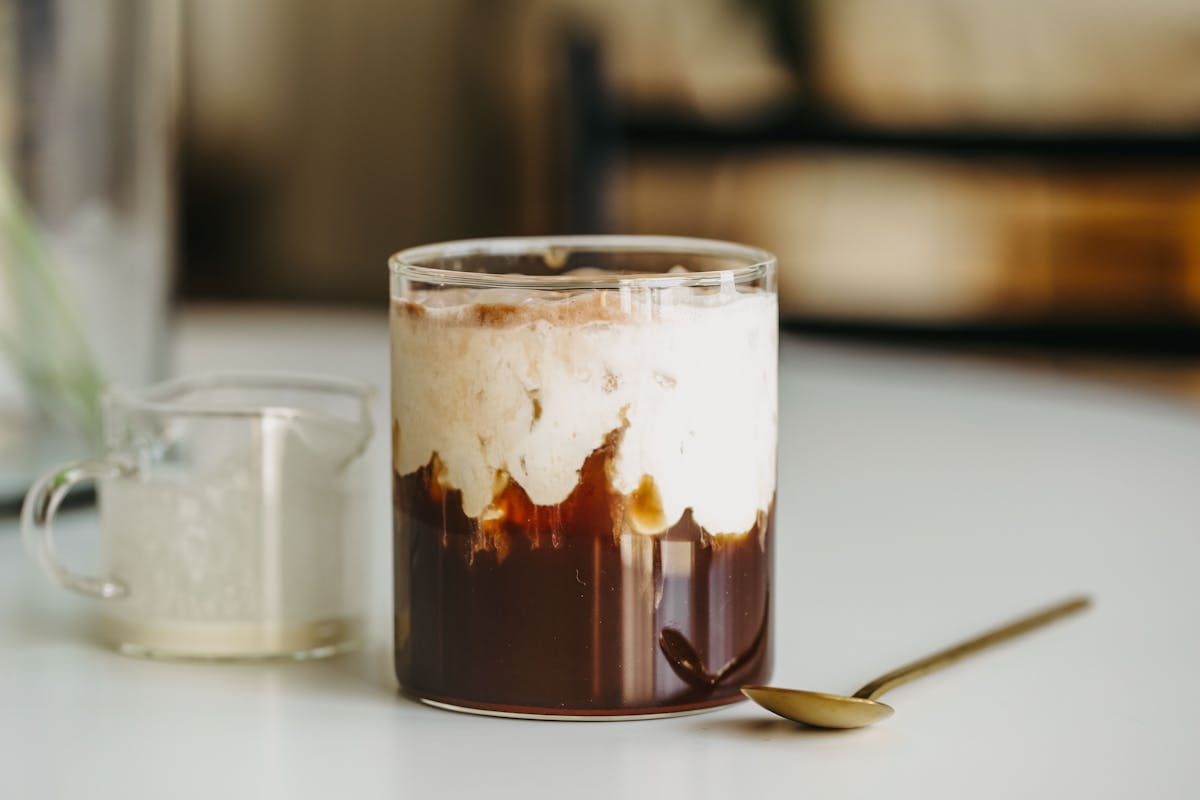
Cold, creamy and delicious - This chocolatey cold brew recipe is the perfect treat to kickstart your morning! The Recipe Chocolate Cream Cold Brew Prep Time: 1 minutes Cook Time: 5 minutes Ingre...
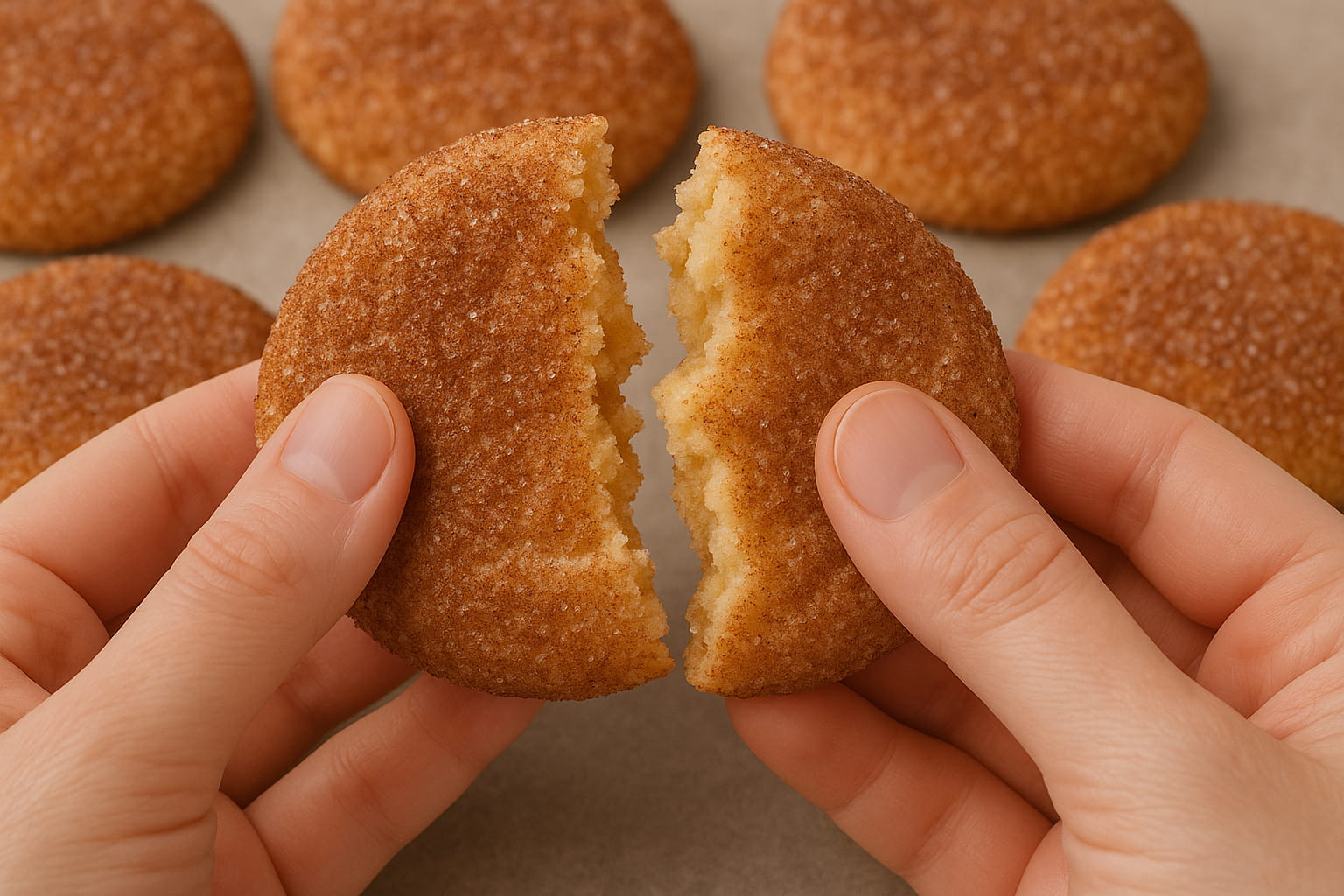
Indulge in the warm embrace of autumn with Pumpkin Spice Snickerdoodles - soft, spiced, and utterly irresistible! The Recipe Pumpkin Spice Snickerdoodles Prep Time: 10 minutes Cook Time: 1 hour ...
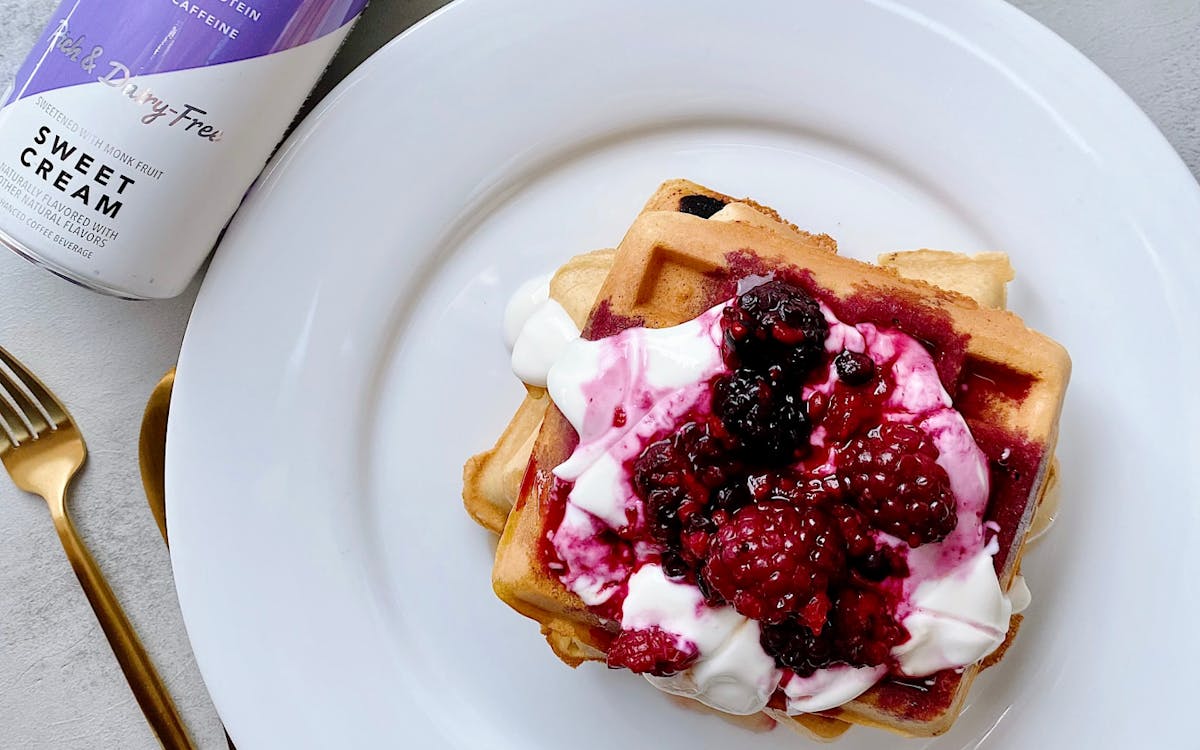
Low Carb Berries & Cream Waffles
These low carb/low sugar waffles are delicious, wonderfully crispy on the outside, and fluffy on the inside. You can also double batch and freeze for easy weekday breakfasts. Featuring our almost-...
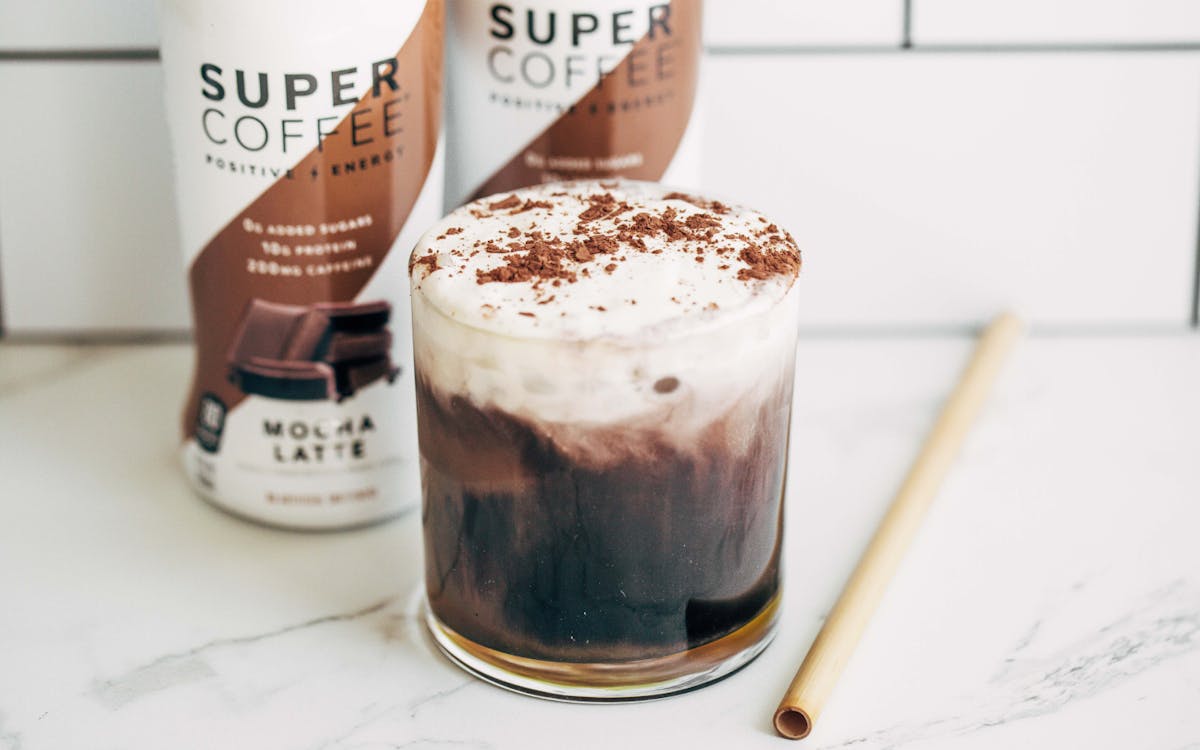
This may be the most fun latte recipe we’ve tried yet! With gooey & decadent black chocolate drizzle and a thick layer of creamy French Vanilla, just one sip of this iced latte will transport ...
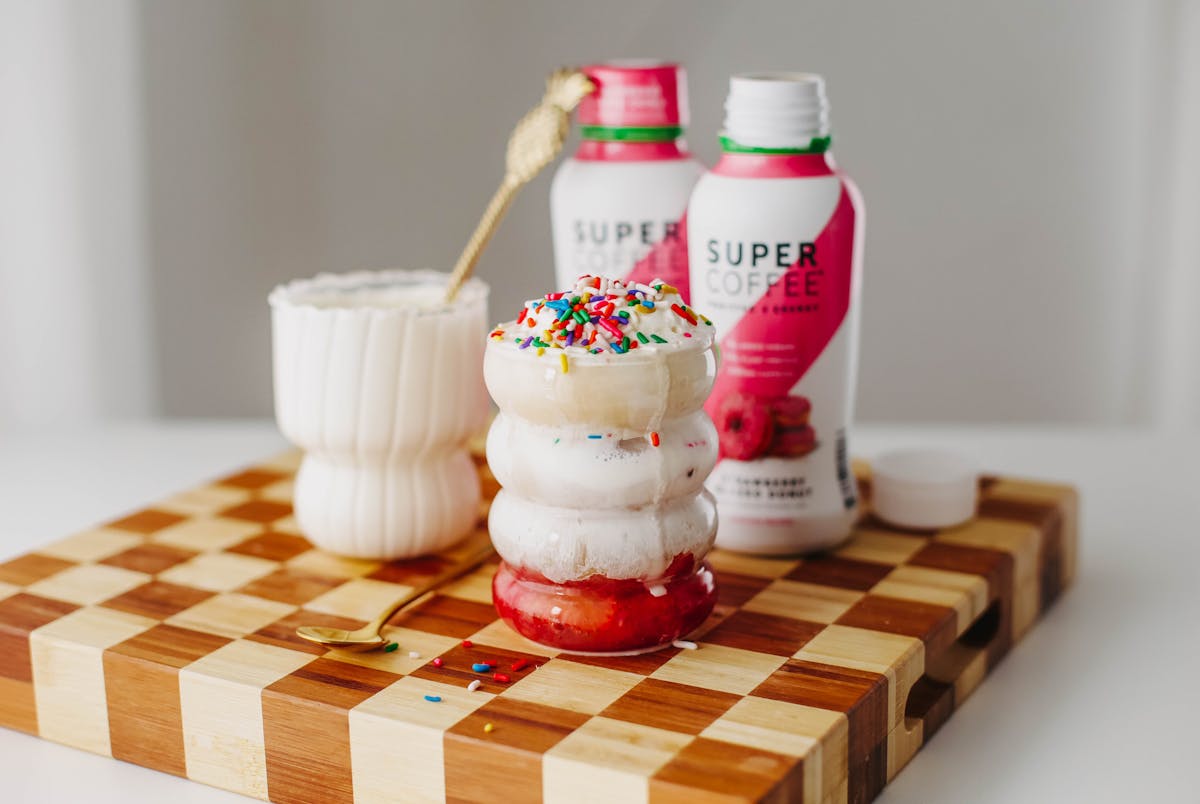
Strawberry Sprinkle Keto Coffee Recipe
Nutritional Info Calories: 274 Fat: 26.7g Carbs: 5.7g Protein: 4.5g Sugar: 2.1g Ingredients 3 strawberries, sliced. 3-4 tbsp heavy cream or half & half. Enough ice to fill a glass. 1/2 cup S...

8 Healthy Coffee Recipes That Are Better Than Starbucks
There’s no question about it. Coffee is good for you. Those who don’t like black coffee, of course, commonly add milk, cream and sugar – even if that also means adding calories, fat or carbs to the...



